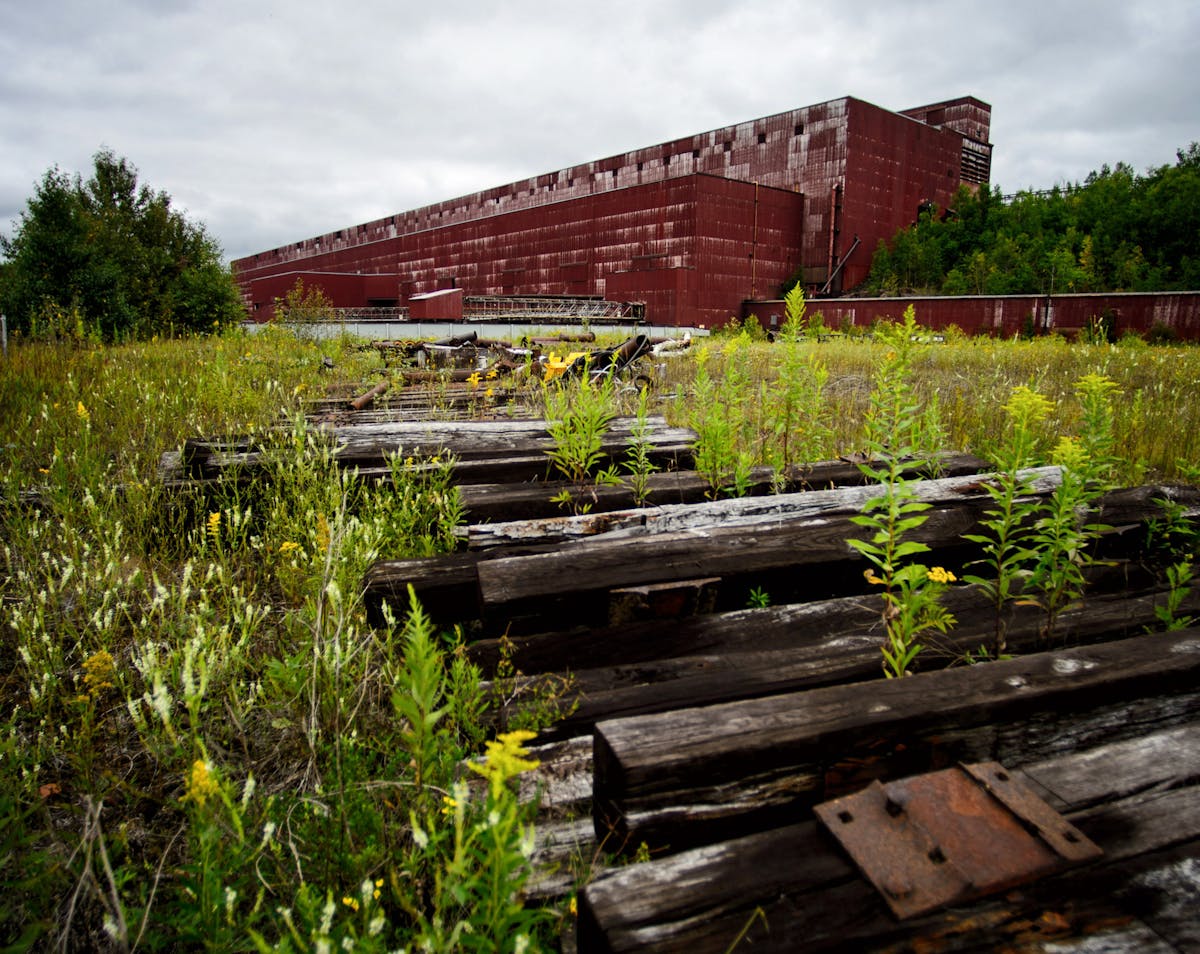A bitterly contested copper-nickel mine proposed for northeast Minnesota cleared another major hurdle Monday, when the U.S. Forest Service approved a deal to trade 6,650 acres of federally owned forests and wetlands to PolyMet Mining Corp. in exchange for 6,690 acres scattered elsewhere across that part of the state.
The exchange, while expected, is a critical part of PolyMet's plan because it provides the company access to mineral ore it owns beneath the publicly held land.
"This is an incredibly important milestone for PolyMet," said Jon Cherry, president and chief executive of the company. It means PolyMet has the rights to 30 square miles of land for its planned $650 million project near Hoyt Lakes, which the company says could create up to 350 jobs.
The Forest Service acknowledged that it agreed to the exchange despite resistance from several Minnesota Indian tribes, environmental groups and 22,500 individual objections from the public. But it decided that the swap is in the best interest of the public.
The Forest Service is giving up a large parcel that is surrounded by private land and is therefore inaccessible to the public; in exchange, it will get forests, lakeshore and wetlands accessible to the public. The new acres are also largely inside the 3-million acre Superior National Forest, which consolidates its ownership, the Forest Service said.
PolyMet is one of several possible mining ventures underway in Minnesota but is the farthest along in the complex regulatory process.
Copper-nickel mining has generated intense controversy because it carries far greater environmental risks than the region's incumbent taconite industry. It can produce acid drainage that leaches heavy metals and toxins from rock that can contaminate surrounding waters. But it also promises an economic resurgence for an area that's seen a decline in taconite production and a steady erosion of jobs.
Groups on both sides of the debate immediately weighed in on the announcement.
Jobs for Minnesotans, a pro-mining group said, "This decision takes us one step closer to bringing hundreds of jobs to an area of the state that desperately needs the economic opportunities that this project will provide."
Friends of the Boundary Waters Canoe Area Wilderness, a nonprofit, said the exchange is a bad deal for Minnesota taxpayers. "No exchange of land is going to fix the damage that PolyMet is going to do," said Paul Danicic, executive director.
He said the swap ensures the destruction of irreplaceable high quality wetlands and forests.
Others questioned whether the Forest Service was simply transferring a difficult environmental dilemma onto Minnesotans. Instead of denying PolyMet permission to mine on federal forests, it agreed to swap the land instead. "But the problem doesn't go away — it's just not a Forest Service problem anymore," said Kevin Lee, an attorney with the Minnesota Center for Environmental Advocacy.
The Forest Service acknowledged the environmental risks in November, when it denied mineral leases to another mining company, Twin Metals, a subsidiary of the Chilean giant Antafogasta PLC. That mine, near Ely, would be built on the edge of the BWCA, which the Forest Service said is too great a risk to the wilderness. It opened a two-year environmental review that could result in banning all mining from federal lands near the BWCA.
PolyMet, a publicly held Canadian company one-third owned by the Swiss commodities giant Glencore, is just outside the BWCA watershed, and drains largely to Lake Superior.
The land offered by PolyMet includes:
• A 4,650-acre tract at Hay Lake northwest of Biwabik, which is identified by the Minnesota Department of Natural Resources as wild rice water.
• 1,560 acres in four parcels west and southwest of Isabella in Lake County, which includes wetlands.
• 320 acres in various tracts southeast of Seven Beaver Lake, which also offer a high percentage of wetland habitat.
• 160 acres of hunting club lands southwest of Crane Lake in St. Louis County.
Josephine Marcotty • 612-673-7394

Baseball Metro Player of the Year packs up his five tools and leaves

Prep baseball 2024: 35 Minnesota stars who the recruiters covet
Police searching for St. Paul home intruder who raped, robbed woman

Friend heard money, relationship woes from man tied to Chanhassen killing who took his own life

